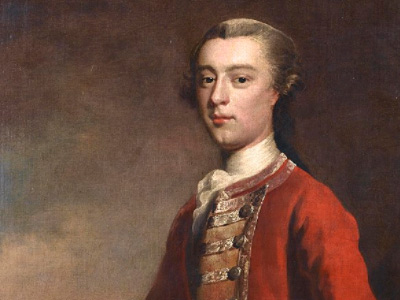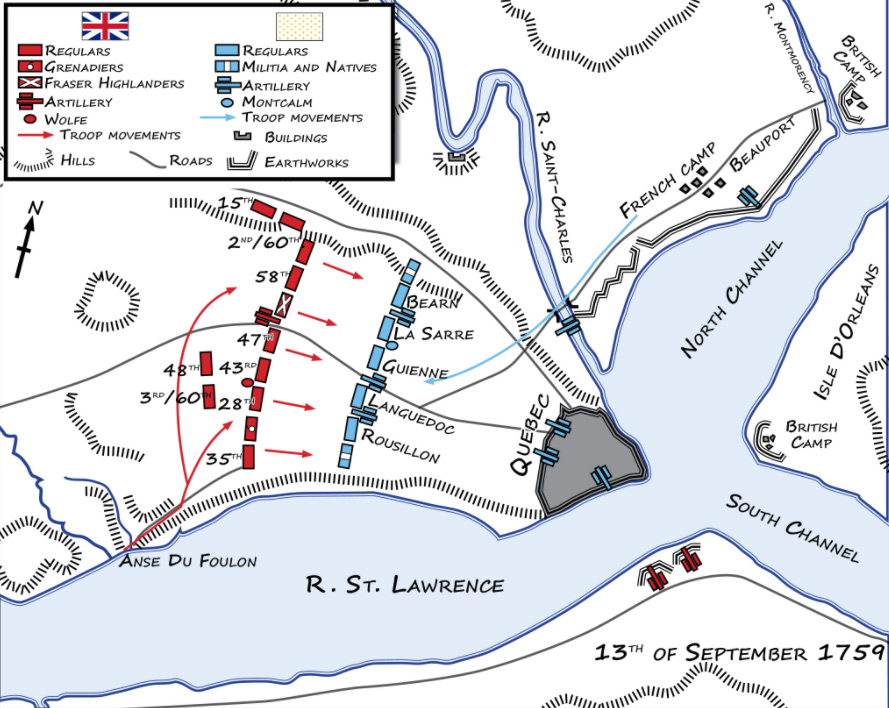James Wolfe (1727-1759)
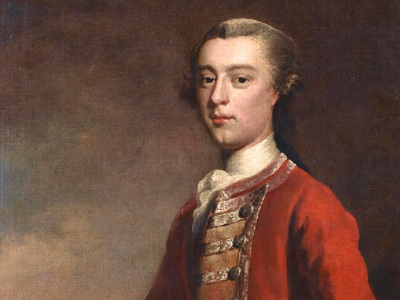
Peacetime Service (1748–1756)
Scottish garrison
Once home, he was posted to Scotland and garrison duty, and a year later was made a major, in which rank he assumed command of the 20th Regiment, stationed at Stirling. In 1750, Wolfe was confirmed as Lieutenant Colonel of the regiment.
During the eight years Wolfe remained in Scotland, he wrote military pamphlets and became proficient in French, as a result of several trips to Paris France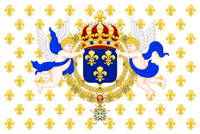 The Kingdom of France is the historiographical name or umbrella term given to various political entities of France in the medieval and early modern period. It was one of the most powerful states in Europe since the High Middle Ages. It was also an early colonial power, with possessions around the world. Colonial conflicts with Great Britain led to the loss of much of its North American holdings by 1763. The Kingdom of France adopted a written constitution in 1791, but the Kingdom was abolished a year later and replaced with the First French Republic.. Despite struggling with bouts of ill health suspected to be tuberculosis, he also tried to keep himself mentally fit by teaching himself Latin and mathematics, also Wolfe trained his body too, pushing himself to improve his swordsmanship and attending sessions where he learned about science and how to improve his leadership skills. Wolfe worked hard despite his illness and learned from many people. Wolfe had made the number of influential acquaintances during the recent war. His father, who was now a General, also actively assisted his son's career.
The Kingdom of France is the historiographical name or umbrella term given to various political entities of France in the medieval and early modern period. It was one of the most powerful states in Europe since the High Middle Ages. It was also an early colonial power, with possessions around the world. Colonial conflicts with Great Britain led to the loss of much of its North American holdings by 1763. The Kingdom of France adopted a written constitution in 1791, but the Kingdom was abolished a year later and replaced with the First French Republic.. Despite struggling with bouts of ill health suspected to be tuberculosis, he also tried to keep himself mentally fit by teaching himself Latin and mathematics, also Wolfe trained his body too, pushing himself to improve his swordsmanship and attending sessions where he learned about science and how to improve his leadership skills. Wolfe worked hard despite his illness and learned from many people. Wolfe had made the number of influential acquaintances during the recent war. His father, who was now a General, also actively assisted his son's career.
In 1752 Wolfe was granted extended leave, and he first went to Ireland staying in Dublin with his uncle and visiting Belfast and the site of the Battle of the Boyne. After a brief stop at his parents house in Greenwich he received permission from the Duke of Cumberland to go abroad and he crossed the Channel to France. He took in the sights of Paris including the Tuileries Gardens and visited the Palace of Versailles. He was frequently entertained by the British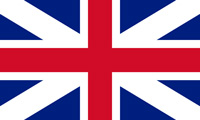 The Kingdom of Great Britain was a sovereign country in Western Europe from 1 May 1707 to the end of 31 December 1800. The state was created by the 1706 Treaty of Union and ratified by the Acts of Union 1707, which united the kingdoms of England (which included Wales) and Scotland to form a single kingdom encompassing the whole island of Great Britain and its outlying islands, with the exception of the Isle of Man and the Channel Islands. Ambassador, Earl of Albemarle, with whom he had served in Scotland in 1746. Albemarle arranged an audience for Wolfe with Louis XV. While in Paris Wolfe spent money on improving his French and his fencing skills. He applied for further leave so he could witness a major military exercise by the French army, but he was instead urgently ordered home. He rejoined his regiment in Glasgow. By 1754 Britain's declining relationship with France made a fresh war imminent and fighting broke out in North America between the two sides.
The Kingdom of Great Britain was a sovereign country in Western Europe from 1 May 1707 to the end of 31 December 1800. The state was created by the 1706 Treaty of Union and ratified by the Acts of Union 1707, which united the kingdoms of England (which included Wales) and Scotland to form a single kingdom encompassing the whole island of Great Britain and its outlying islands, with the exception of the Isle of Man and the Channel Islands. Ambassador, Earl of Albemarle, with whom he had served in Scotland in 1746. Albemarle arranged an audience for Wolfe with Louis XV. While in Paris Wolfe spent money on improving his French and his fencing skills. He applied for further leave so he could witness a major military exercise by the French army, but he was instead urgently ordered home. He rejoined his regiment in Glasgow. By 1754 Britain's declining relationship with France made a fresh war imminent and fighting broke out in North America between the two sides.
Discipline
Desertion, especially in the face of the enemy had always officially been regarded as a capital offence. Wolfe laid particular stress on the importance of the death penalty and in 1755, he ordered that any soldier who broke ranks ("offers to quit his rank or offers to flag") should be instantly put to death by an officer or a sergeant.
HISTORY
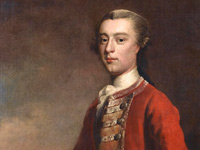
RESOURCES
This article uses material from the Wikipedia article "James Wolfe (1727-1759)", which is released under the Creative Commons Attribution-Share-Alike License 3.0.
© Stories Preschool. All Rights Reserved.
